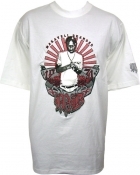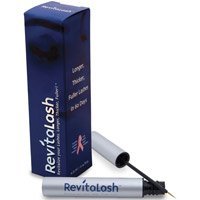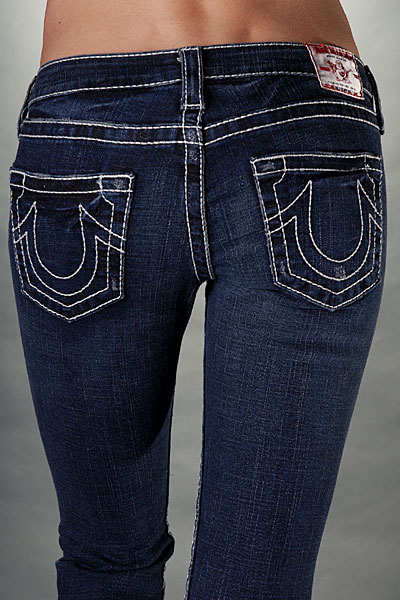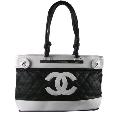Los Angeles, CA – Trademark lawyers for rapper, actor, poet and musician Tupac Shakur’s estate filed a trademark infringement, Lanham Act unfair competition and a false advertising, and commercial appropriation of name and likeness lawsuit at the Federal District Court in Los Angeles. Although Tupac Shakur passed away over eleven years ago, he remains a popular hip-hop musician, artist, actor and poet. His intellectual property and publicity rights, according to Forbes magazine, ranked his estate’s earnings in the top nine for deceased celebrities. His estate licenses all of the intellectual property rights, “including rights to merchandise the trademarks and posthumous publicity rights” to the Plaintiff, Amaru-Awa Merchandising, Inc. Amaru owns a USPTO registered trademark for “Makaveli,” for use on recorded media and clothing.
 Defendants own and operate a retail store named Rock Town, and a private investigator – acting on behalf of Plaintiffs – allegedly “purchased an unauthorized t-shirt bearing an image of Tupac Shakur and the trademark ‘Makaveli.'” Plaintiffs sent a cease and desist letter to the Defendants, to which there has been no response. Plaintiffs filed the instant lawsuit seeking monetary damages and injunctive relief. The case is titled Amaru Entertainment, Inc. v. Reza Falatoon, CV08-03317 DSF (C.D. Cal. 2008).
Defendants own and operate a retail store named Rock Town, and a private investigator – acting on behalf of Plaintiffs – allegedly “purchased an unauthorized t-shirt bearing an image of Tupac Shakur and the trademark ‘Makaveli.'” Plaintiffs sent a cease and desist letter to the Defendants, to which there has been no response. Plaintiffs filed the instant lawsuit seeking monetary damages and injunctive relief. The case is titled Amaru Entertainment, Inc. v. Reza Falatoon, CV08-03317 DSF (C.D. Cal. 2008).
 Los Angeles Intellectual Property Trademark Attorney Blog
Los Angeles Intellectual Property Trademark Attorney Blog


 The complaint alleges that Defendants incorporated under the confusingly similar name of Athena Bioscience, also using it as a trademark, in addition to using the confusingly similar trademark of Athena Lash Serum. The complaint further asserts causes of action for unfair completion under Cal. Bus. & Prof. Code §17200, intentional interference with prospective economic advantage, intentional interference with contract, and declaratory relief under 28 U.S.C. §2201 as to the ownership of the trademarks. The case is titled Athena Cosmetics, Inc. v. Athena Bioscience, SACV08-0532 AG (C.D. 2008).
The complaint alleges that Defendants incorporated under the confusingly similar name of Athena Bioscience, also using it as a trademark, in addition to using the confusingly similar trademark of Athena Lash Serum. The complaint further asserts causes of action for unfair completion under Cal. Bus. & Prof. Code §17200, intentional interference with prospective economic advantage, intentional interference with contract, and declaratory relief under 28 U.S.C. §2201 as to the ownership of the trademarks. The case is titled Athena Cosmetics, Inc. v. Athena Bioscience, SACV08-0532 AG (C.D. 2008). Guru Denim owns a
Guru Denim owns a  Plaintiff asserts that Defendant “Rangefinder intends to use the designation World Imaging Expo for tradeshows in the field of professional photography” and that Plaintiff became aware of the competing tradeshow when it discovered a copy of the World Imaging Expo convention program guide. Professional Photographers also discovered that Rangefinder had filed an intent-to-use trademark application with the USPTO. Professional Photographers asserts that it sent a cease and desist letter to Rangefinder over the use of the World Imaging Expo trademark, but Rangefinder refused to withdraw its pending trademark application or stop using the trademark. Thus the complaint was filed asserting causes of action for federal trademark infringement under 15 U.S.C. § 1114, false designation of origin and false representation under 15 U.S.C. § 1125(a), and unfair competition under California common law and statutes. The case is titled Professional Photographers of America, Inc. v. Rangefinder Publishing Co., CV08-02324 SVW (C.D. Cal. 2008).
Plaintiff asserts that Defendant “Rangefinder intends to use the designation World Imaging Expo for tradeshows in the field of professional photography” and that Plaintiff became aware of the competing tradeshow when it discovered a copy of the World Imaging Expo convention program guide. Professional Photographers also discovered that Rangefinder had filed an intent-to-use trademark application with the USPTO. Professional Photographers asserts that it sent a cease and desist letter to Rangefinder over the use of the World Imaging Expo trademark, but Rangefinder refused to withdraw its pending trademark application or stop using the trademark. Thus the complaint was filed asserting causes of action for federal trademark infringement under 15 U.S.C. § 1114, false designation of origin and false representation under 15 U.S.C. § 1125(a), and unfair competition under California common law and statutes. The case is titled Professional Photographers of America, Inc. v. Rangefinder Publishing Co., CV08-02324 SVW (C.D. Cal. 2008). Plaintiff alleges that Defendant’s website,
Plaintiff alleges that Defendant’s website,  The complaint alleges that defendants are selling lower quality imitations of Chanel’s handbags and wallets, which bear counterfeit Chanel trademarks. The complaint asserts that the Defendants are offering the counterfeit goods on their websites: www.gqbags.com and www.ultimatehandbags.com. The websites offer handbags for sale that are substantially less expensive than authentic Chanel products. “The net effect of the Defendants’ actions will be to result in the confusion of consumers who will believe the Defendants’ Counterfeit Goods are genuine goods originating from and approved by Chanel.” Chanel believes that the defendants are engaging in the sale of counterfeit goods intentionally and willfully. The complaint alleges causes of action for trademark infringement and counterfeiting under section 32 of the Lanham Act, 15 U.S.C. § 114, and false designation of origin and unfair competition under section 43(a) of the Lanham Act, 15 U.S.C. § 1125(a). The case is titled: Chanel, Inc. v. Kimberli Hunter, et al., CV08-02226 GHK (C.D. Cal. 2008).
The complaint alleges that defendants are selling lower quality imitations of Chanel’s handbags and wallets, which bear counterfeit Chanel trademarks. The complaint asserts that the Defendants are offering the counterfeit goods on their websites: www.gqbags.com and www.ultimatehandbags.com. The websites offer handbags for sale that are substantially less expensive than authentic Chanel products. “The net effect of the Defendants’ actions will be to result in the confusion of consumers who will believe the Defendants’ Counterfeit Goods are genuine goods originating from and approved by Chanel.” Chanel believes that the defendants are engaging in the sale of counterfeit goods intentionally and willfully. The complaint alleges causes of action for trademark infringement and counterfeiting under section 32 of the Lanham Act, 15 U.S.C. § 114, and false designation of origin and unfair competition under section 43(a) of the Lanham Act, 15 U.S.C. § 1125(a). The case is titled: Chanel, Inc. v. Kimberli Hunter, et al., CV08-02226 GHK (C.D. Cal. 2008).